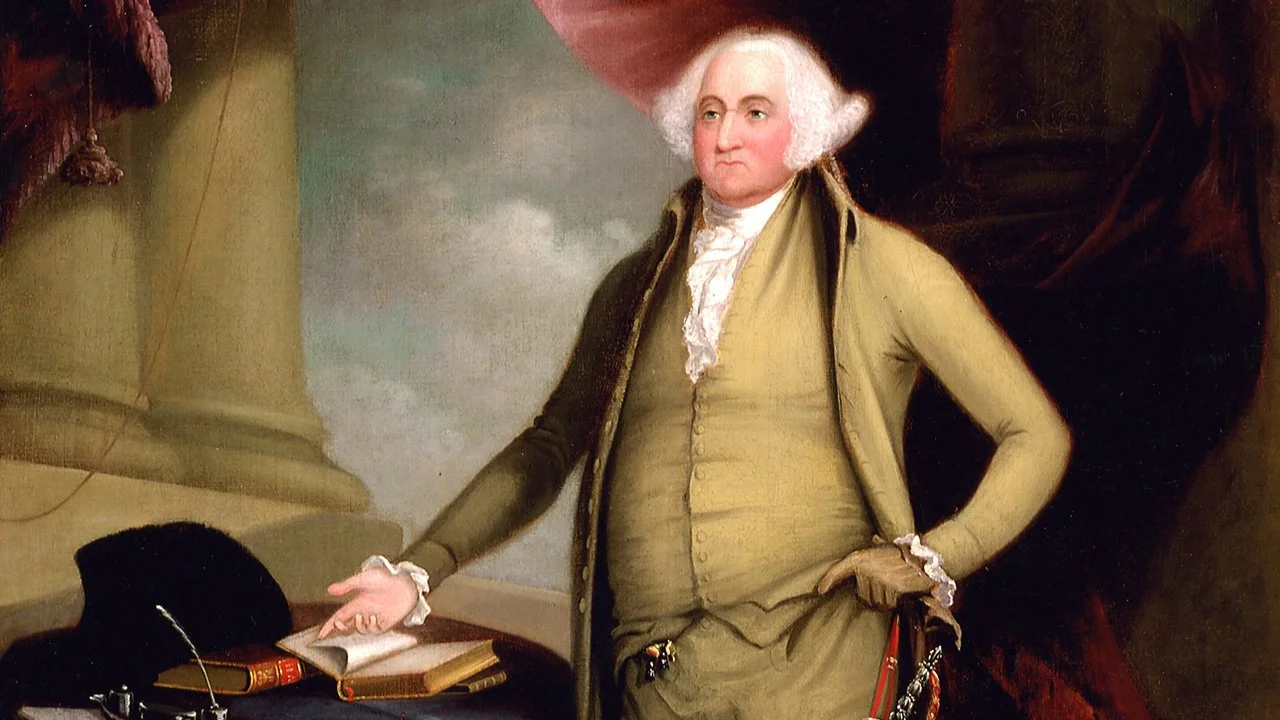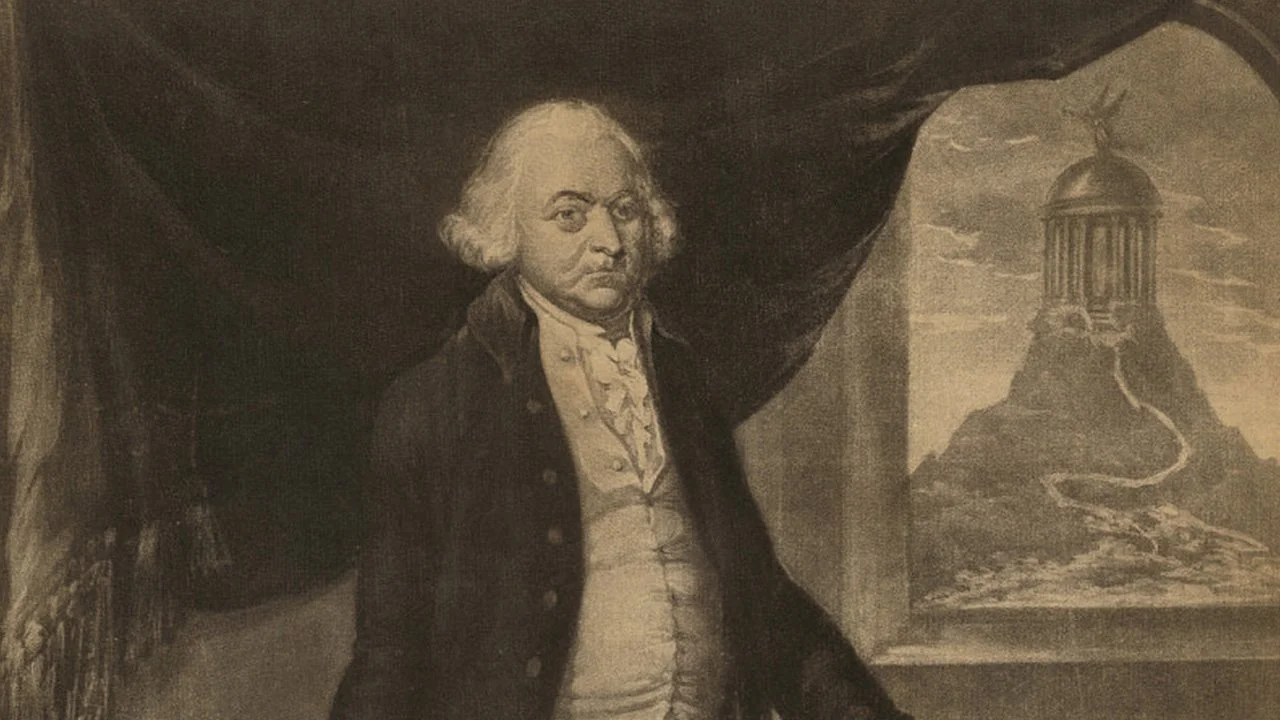John Adams and the Presidential Election of 1796
The election of 1796 was America’s first contested presidential election. With George Washington’s retirement, the electorate split into two camps. Under the original rules of the Constitution, the top vote getter, John Adams, a Federalist, was declared President and the second highest, Thomas Jefferson, a Democratic-Republican, was named Vice President.
John Adams, Our First Vice President
In the first Presidential election, the Electoral College met on February 4, 1789, and unanimously selected George Washington as President. The second highest vote getter was John Adams, thus becoming America’s first Vice President.
America’s “Era of Good Feelings” Comes to an End
From 1800-1824, the Democratic-Republicans dominated the American political landscape like no party has ever done, making America essentially a one-party country. This period of unity and dominance came to a crashing halt with the bitter Presidential election of 1824.
Political Unity During Our Founding Era
From the First Continental Congress in 1774 until the election of 1824, America was more politically united than at any other time in our nation’s history. While there were differences of opinion, the Founders had a common goal of gaining our independence from England. Only after England was defeated and the new Constitution took effect did their unity begin to splinter.
The Newburgh Conspiracy, Part 3: George Washington Upholds Revolutionary Principles
The Newburgh Conspiracy represents a time when our nation came closest to deviating from our core revolutionary principles of representative government with civilian control of the military. Only George Washington’s steady and unselfish leadership on March 15, 1783, when he calmed the discontent of Continental Army soldiers, prevented this devastating event from happening.
The Newburgh Conspiracy, Part 2: George Washington Averts Mutiny
On March 11, 1783, soldiers were supposed to meet after an anonymous letter circulated through the Continental Army’s encampment at Newburgh encouraging them to take action against Congress and their unfulfilled promises of a pension for the men.
The Newburgh Conspiracy, Part 1: Widespread Unrest at Newburgh Encampment
On March 10, 1783, an anonymous letter circulated through the Continental Army’s encampment at Newburgh encouraging the soldiers take action against Congress, who had begun to waffle on their promise of a lifetime pension of half-pay upon discharge from the service.
Tenth Amendment Guarantees Federalist System of Government
The Tenth Amendment guarantees us a government which divides power between a distant central authority and legislatures closer to home and more in tune with local needs.
Beyond the Bill of Rights – Ninth Amendment Protections
The Ninth Amendment, crafted by James Madison, reserves for the people all rights not expressly granted to the government. Tom Hand, creator and publisher of Americana Corner, explores how this visionary amendment addressed the concern that the new Bill of Rights might be construed as a complete list, and why it still matters today.
The Eighth Amendment and Protecting the Criminally Accused
Our Forefathers knew that a person accused or convicted of a crime within the bounds of our judicial system would be relatively powerless without certain protections. To prevent harsh and arbitrary treatment by the government, the Founders created the Eighth Amendment.
Fair Trials Guaranteed By the Seventh Amendment
Our founding fathers had experienced a country in which the monarchy had been both the judge and the jury. This one-sided system was terribly unfair. In response, they created the Seventh Amendment to ensure the people, not the government, decide if someone is innocent or guilty.
Guaranteeing Your Rights in Criminal Proceedings
The Sixth Amendment helped usher in a new age of justice. With the various rights included in this amendment, the Founders guaranteed to all Americans transparency and fairness in criminal proceedings, and protection from an over-reaching government.
Innocent Until Proven Guilty
The Fifth Amendment contains five separate but related rights protecting those accused of a crime. Thanks to the foresight of our Founders, we are innocent until proven guilty, and the burden to prove guilt falls on the government.
The Fourth Amendment, the Basis for Our Right to Privacy
It is hard to imagine any place more sacred to each of us than our home. We take for granted a natural right to privacy there, but our Founders lived in a different time.
A Little-Known Amendment, Important to Our Founders
The Third Amendment centered on a very important matter to our Founding Fathers, that of the people being forced to bear the costs of housing and feeding soldiers.
The Right to Keep and Bear Arms
The Founders recognized that securing oneself from harm was a fundamental right and made certain they guaranteed it to all of us.
The First Amendment and Freedom to Assemble and Petition
When creating the Bill of Rights, the Founders believed meetings to discuss vital issues of the day were essential to a republican form of government. The right to peaceably assemble allowed people to gather, discuss ideas, and formulate their requests, and the right to petition allows these requests to be taken directly to elected officials.
The First Amendment and Freedom of Speech
American colonies had suffered with oppressive policies under English rule. Prior to the First Amendment, the right to say and print what whatever one wanted, including making negative comments about the government, did not exist.






















